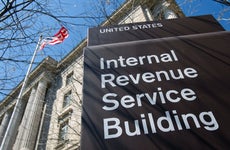5 questions to ask your tax attorney
The Bankrate promise
At Bankrate we strive to help you make smarter financial decisions. While we adhere to strict , this post may contain references to products from our partners. Here's an explanation for .
If you have a complex tax situation, you may need to hire a tax attorney. In order to choose the right professional to help you with your situation, it’s important to determine if he or she is qualified. Here are five questions you should ask any potential tax attorney.
1. Are you admitted to the state bar?
Attorneys must have their Juris Doctor, or JD, degree from an accredited law school, and they must also be admitted to the state bar. This is especially important if they need to assist you in a legal or criminal matter between you and the Internal Revenue Service.
2. Do you have specialized training?
Many attorneys have additional specialization in tax law, including a Master of Laws degree in taxation. Some attorneys may also have a special background in accounting, and they may have a Certified Public Accountant, or CPA, designation.
3. How long has your firm been in business?
Get an understanding of how long the attorney has been assisting clients who have been in similar situations.
4. How much do you charge?
Fees for attorneys can be several hundred dollars per hour. Their rates can be significantly higher than those of other tax professionals, including accountants and enrolled agents. If your case is complex, however, it may be with worth it to hire a tax attorney.
5. Can you help me with my case?
Be ready to discuss your situation as it relates to taxes, and ask if the lawyer has experience in your area of need. Whether it is complex business interests, real estate ownership issues or an IRS audit, find out if the attorney is qualified to help. If he or she is not, ask for a recommendation of another qualified tax attorney who can.
Related Articles


Need to report cryptocurrency on your taxes? Here’s how to use Form 8949 to do it

Cryptocurrency taxes: A guide to tax rules for Bitcoin, Ethereum and more
